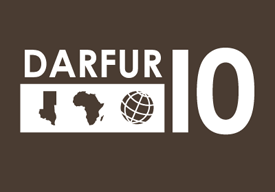
Editor's Note: This op-ed originally appeared on TakePart.
Ongoing violence in Sudan’s western Darfur region has driven more than 271,000 civilians to flee their homes and temporarily resettle in refugee camps across the border in eastern Chad. Today, after 10 years of conflict, these refugees depend on international support for basic needs such as food and water, but, just as importantly, they also depend on this support for education. However, as fighting in Darfur continues, funding for Darfuri refugee education has decreased and further budget cuts remain a major concern among the refugee population.
Several months ago, I had the opportunity to visit Djabal and Goz Amer, two of the refugee camps in eastern Chad. I met with students, teachers, and community members to discuss the needs and challenges of implementing primary education in the camps, where an estimated 60 percent of the population is made up of women and children.
After meeting with the camp leaders, a woman pulled me aside to ask why the camp’s education funding was being cut. She explained that for the first time she was learning the alphabet and was so excited about learning how to read. The passion on her on face as she discussed the impact on her and the women in her group was something that will stay with me forever. She recognized the need for education for her as well as for the children in the camp, but expressed concern as reduced funding threatens the primary education budget, among other important programs. Unfortunately, this story of reduced funding is a familiar one.
When we think of support for refugees, we cannot forget the importance of education. On average, a refugee will spend 17 years in displacement. Everyone and every child deserves the right to an education that provides them with, at the very least, basic literacy skills to help them navigate, understand, and engage with the world they live in. The U.N. refugee agency, or UNHCR, considers primary education a priority, but without support from the international community and people like you and I, the implementation of this priority remains a serious challenge.
During my visit, many of the refugees discussed dreams of returning home to resume their studies or to tend to their lands. Avenues to resettle or integrate into Chad are not open yet, so as they wait for peace to return to their homeland, Darfuri refugees hope that the international community does not forget their plight.
Every child should have access to quality education regardless of whether they grow up in their hometown or a refugee camp. When I visit schools in the United States to talk about refugee education, one of the first questions I ask the students is why education matters to them. The answers range from getting a job to getting rich, but the most common answer is to have a bright future. When I asked this question to Darfuri students in the camps, their answer was the same.
While in Chad, I reunited with an amazing young lady named Busseina who I had met during my first trip to Djabal refugee camp. Since our first encounter, she had completed primary school, became a teacher while taking classes at the secondary school, and is now a student at a university in Chad—all thanks to funding and support from the German government. Busseina is fulfilling her dream to become a health practitioner and giving back to her community. Her story is a unique one, but it does not have to be. Other children in the camps have aspirations to become doctors, lawyers, diplomats, engineers, or pilots, and I want them to be able to achieve these dreams.
Support for institutions like UNHCR and Darfur Dream Team Sister Schools program provides hope and skills for marginalized communities even when the world has turned its attention to the next crisis. The Darfur conflict is still going on. As the push for peace continues, the need for sustained support for refugee education is just as critical as it was ten years ago.
The conflict in Darfur began 10 years ago. To commemorate the anniversary—remember the lives lost, acknowledge the continuing struggle of the displaced, and recognize the ongoing effort to establish justice and find peace amid ongoing conflict—Enough and its partners will mark 10 days of activism. Please visit darfur10.org and share the special site with your friends. Read the rest of the blog posts in this 10-day series.

